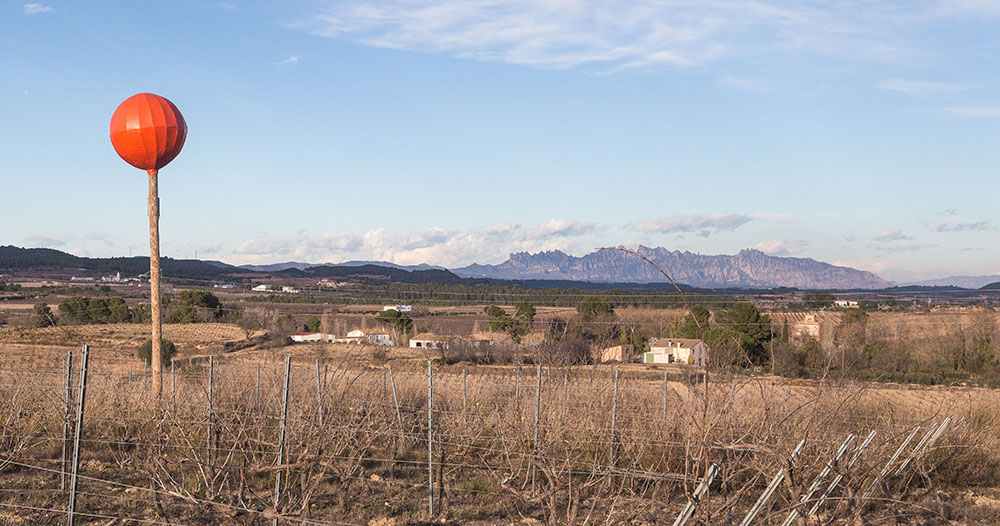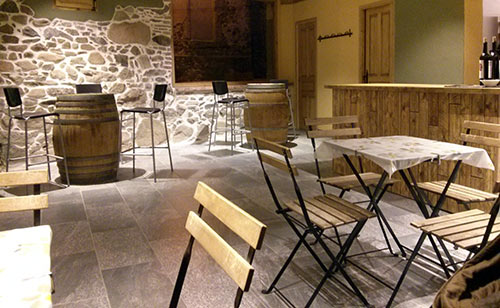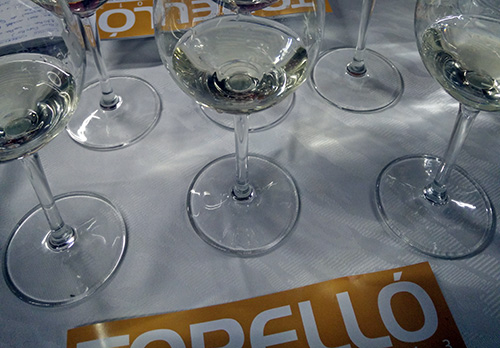This is part two a four-part series on “rebellious” winemakers in Catalunya. Please read Part One, Part Three, and Part Four
What you see with Anna Espelt contrasts massively with Ton Rimbau in Vilobí del Penedès. When I got in his car the first time I visited him, he handed me a sheet of paper and said, “We’re going to cover all these topics today.” Never before had I received a double-sided outline of some 30 items at a visit. It was of course unsurprising as we made our way through the first few items and I worked to keep up that Ton said, “Yeah, everyone thinks I’m nuts.”
Ton started his winemaking project in 2001 after his father passed away. If there is one side of the winemaking galaxy that is the “conventional” method, Ton would be on the absolute other end of it and then down a black hole. There is an endless list of “unique” viticultural approaches that Ton uses. In the vineyards, he puts a resin rod that has been embedded with copper and aluminum bits which is then wired to a grounding rod to in order to absorb and then channel away mobile phone signals. He has a one-bladed, 80cm deep plough that he uses once a year to dig a deep channel to apply his in-house mixture of vineyard treatments; one of which is a blend of nettles, rosemary, and thyme along with horse manure. Some vineyards are exposed to certain colors in order to stimulate growth.
It’s an endless list that can best be summed up when you try his wines, which are all primarily based on Xarel·lo grapes, but are then aged and sold in ceramic bottles. As Ton puts it, “My wines are natural wines with no added sulfites. They’re very delicate and the ceramic bottles don’t allow any light to reach the wine, thus preserving them. Glass and even porcelain bottles are inadequate.” Amazingly, the thinking does add up as once opened, you can leave them out to taste for days after and they’re still wondrously vibrant.
His Vi Xarel·lo stands out as one of the stars with a full, structured body in the mouth with light, lingering crisp acidity in the finish. His dessert wine, Vi Dolç Natural is simply brilliant with notes of caramelized almonds, light salinity, and mouth-watering acidity to provide a backbone and counter to the sweet notes of the wine.
There are admittedly many people in Catalonia who prefer not to share an elevator with Ton and my first encounters with him at fairs were, well, “interesting”. But despite all the lunacy, there is a curious mind at work behind everything and he’s happy to prove it if someone has the patience to listen. Ton, much like Anna is always tinkering with the direction of his wines. Of course, with a considerably lower production of just a 15,000 bottles a good year, his ship can change course faster, and it does often. You can only try to keep up.
Continue to Part Three




